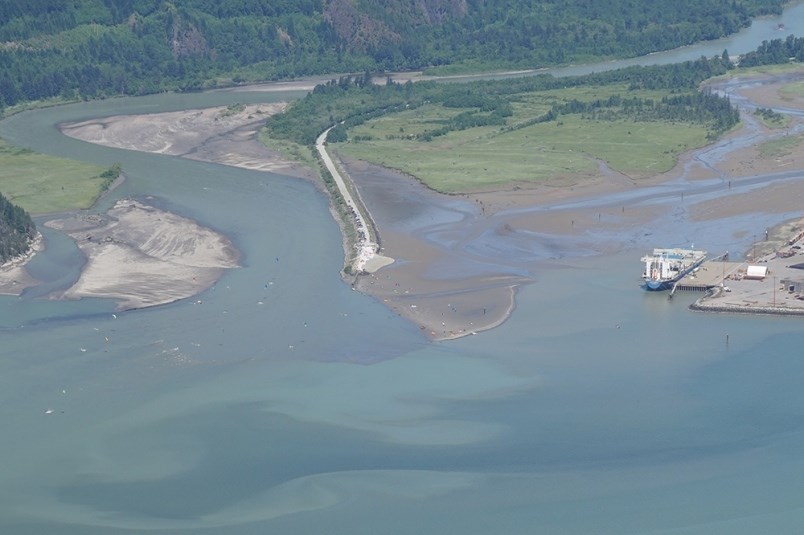The May long weekend was busy for many in B.C., including local rescue associations.
On Saturday, May 18, Squamish Search and Rescue received two calls for help at the same time: One from three stranded canoers, and the other from a man who fell off a waterfall.
"It's rare to have two swift water rescues at the same time," Landon James, one of the SAR members, said.
Each rescue group in the Sea to Sky has a few members trained for such a situation. Thus, for this situation, all of the Sea to Sky SAR teams and the Squamish fire department were activated.
The man who fell off the waterfall at Lake Lovely Water, and into a pool below, was able to self-rescue and didn't require help from the SAR team.
The other incident involved three people in a canoe, on their way back from hiking to Echo Lake. James said they hit a strong current in Squamish River that they weren't expecting, flipping their canoe. They were being pulled toward a strainer — an exposed root system in the water — that can drag people under, into the branches and drown them. The canoers were able to crawl on top of the strainer. James said they responded appropriately for the situation by staying put and waiting for help, since they knew people were watching and likely called for assistance. (However, it is not recommended to swim toward a log jam or strainer unless you are being inevitably pulled toward it.)
Squamish Fire Rescue was on the scene, providing downstream containment and keeping an eye on the stranded canoers, while Squamish SAR got their vessel ready. Between the call and reaching shore, the canoers were stranded for three hours, James told the Chief.
They had no injuries and refused medical attention.
All in all, 30 Squamish SAR members as well as firefighters helped with the canoe rescue. James said he recommends people always be prepared by wearing a lifejacket and getting local knowledge on watersystems, such as from local adventure stores or Facebook groups, where people usually have the most up-to-date information about the conditions.



